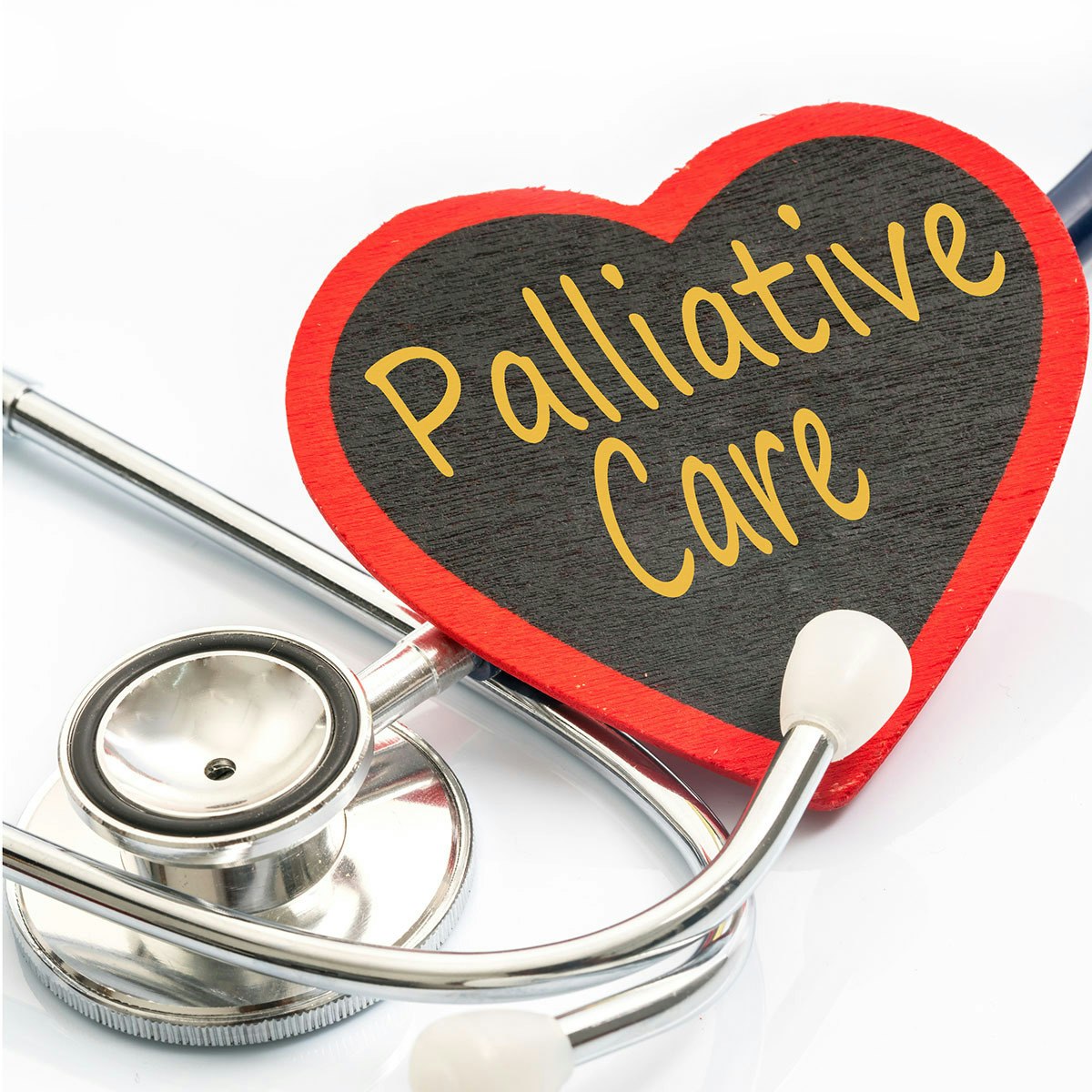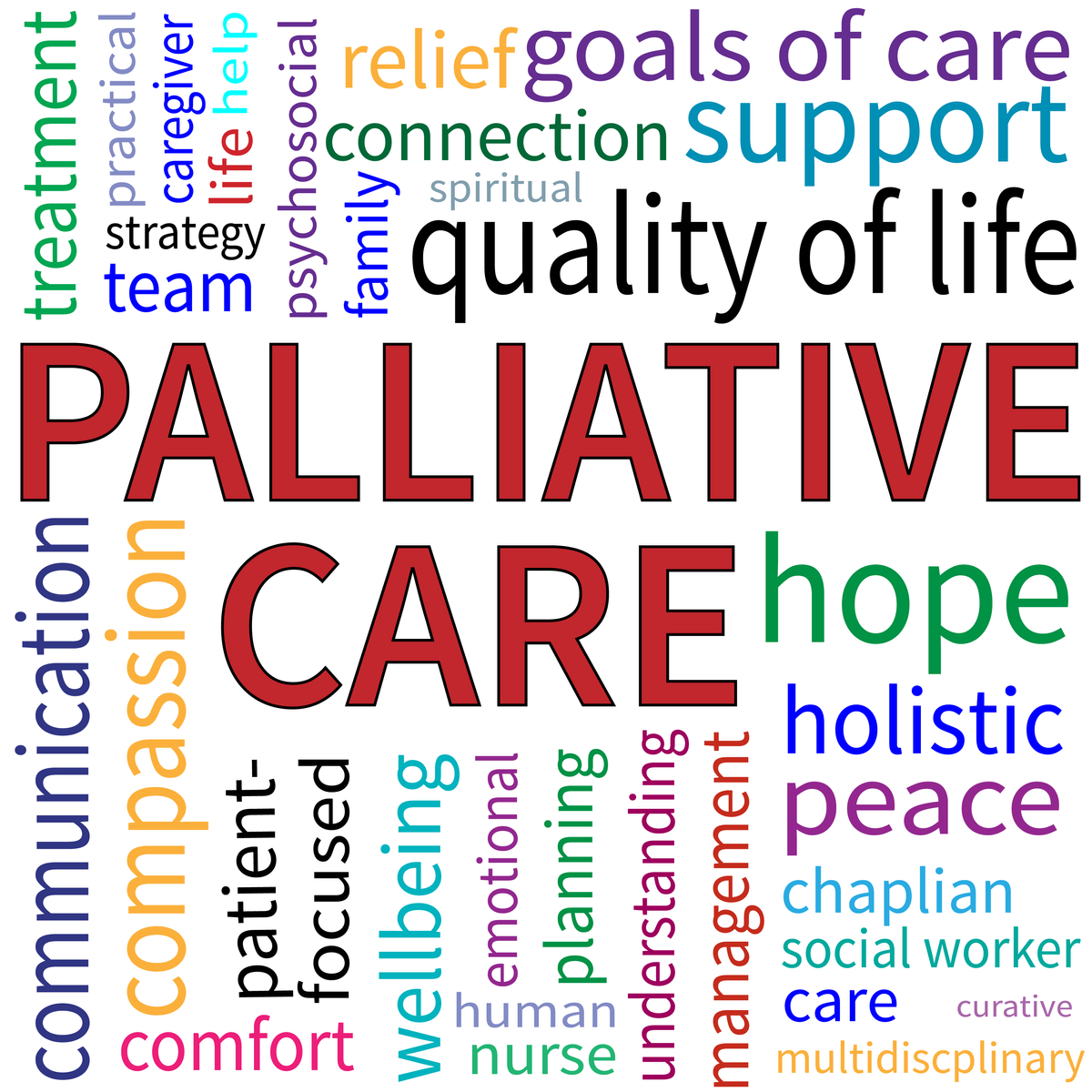Hospice Nurse
A Comprehensive Guide to a Career as a Hospice Nurse
Hospice nursing is a specialized field dedicated to providing compassionate care for individuals facing life-limiting illnesses. Unlike other nursing roles focused on curing disease, hospice nurses prioritize comfort, dignity, and quality of life during the final stages of a person's journey. They offer holistic support that addresses not only the physical symptoms but also the emotional, spiritual, and psychosocial needs of patients and their families.
Working as a hospice nurse offers the unique opportunity to make a profound difference during a significant time in people's lives. It involves building deep, trusting relationships with patients and families, managing complex symptoms effectively, and coordinating care within a dedicated team. This career path calls for a unique blend of clinical expertise, profound empathy, and emotional resilience, offering deep personal and professional fulfillment.
Understanding the Role and Philosophy of Hospice Nursing
What Does a Hospice Nurse Do?
A hospice nurse provides specialized care focused on managing pain and symptoms for patients with terminal illnesses. Their primary goal is to enhance comfort and ensure the patient's final days are lived with dignity and peace. This involves administering medications, monitoring vital signs, providing wound care, and managing other physical discomforts associated with the end of life.
Beyond direct medical care, hospice nurses offer crucial emotional and spiritual support. They act as compassionate listeners, counselors, and advocates for both the patient and their loved ones. They help families navigate the difficult process of loss and grief, providing education about the dying process and offering resources for bereavement support.
Care coordination is another vital aspect of the role. Hospice nurses work collaboratively with physicians, social workers, chaplains, home health aides, and volunteers. They ensure seamless communication within the care team and facilitate care planning that aligns with the patient's wishes and values, often documented in advance directives.
Thorough documentation and adherence to healthcare regulations are essential. Hospice nurses maintain detailed records of patient assessments, interventions, and outcomes, ensuring compliance with legal and ethical standards governing end-of-life care.
These courses provide foundational knowledge in palliative care principles, which are central to hospice nursing.
Core Philosophy and Work Environments
The core philosophy of hospice care centers on affirming life while accepting dying as a normal process. It emphasizes holistic care that addresses the physical, emotional, social, and spiritual dimensions of the patient's experience. The focus shifts from curative treatments to comfort measures, ensuring the patient's remaining time is as meaningful and pain-free as possible.
Supporting the family unit is integral to this philosophy. Hospice nurses recognize that a life-limiting illness impacts the entire family system. They provide guidance, resources, and emotional support to help family members cope with the challenges of caregiving and anticipate the grieving process.
Hospice nurses work in various settings. Many provide care directly in patients' homes, allowing individuals to remain in familiar surroundings. Others work in dedicated inpatient hospice facilities, specialized units within hospitals, or long-term care centers, providing round-the-clock support for patients with complex needs.
The Path to Becoming a Hospice Nurse
Education and Licensure Requirements
The first step towards becoming a hospice nurse is to become a registered nurse (RN). This typically requires completing either an Associate Degree in Nursing (ADN) or a Bachelor of Science in Nursing (BSN) from an accredited nursing program. While both degrees qualify you for RN licensure, a BSN is often preferred by employers and may open more doors for advancement.
After completing your nursing degree, you must pass the National Council Licensure Examination for Registered Nurses (NCLEX-RN). Passing this exam grants you an RN license, which is required to practice nursing in your state. Each state has its own board of nursing with specific requirements for licensure and renewal.
While new graduates can enter hospice care, many employers prefer or require nurses to have some clinical experience, often in areas like medical-surgical nursing, oncology, critical care, or geriatrics. This experience helps build foundational assessment and clinical skills applicable to the complexities of hospice care.
You can explore various nursing programs and related health fields on OpenCourser's Health & Medicine browse page.
Specialized Certification and Training
While not always mandatory, obtaining certification in hospice and palliative nursing demonstrates specialized knowledge and commitment to the field. The Hospice and Palliative Nurses Association (HPNA) offers several credentials, with the Certified Hospice and Palliative Nurse (CHPN) being the most recognized for RNs. Eligibility typically requires RN licensure and a certain number of hours of hospice/palliative nursing practice.
Specific clinical training in palliative care principles is highly beneficial. This includes advanced skills in pain and symptom management, communication techniques for end-of-life discussions, and understanding the psychosocial and spiritual aspects of care. Many employers offer orientation programs and ongoing training, but pursuing additional education can enhance your expertise.
Continuing education is essential for all nurses, including those in hospice. This field is constantly evolving with new research on symptom management, ethical considerations, and care delivery models. Maintaining licensure and certification requires completing a set number of continuing education hours periodically.
These courses offer deeper dives into specific aspects of palliative care relevant to hospice nursing.
Consider reading comprehensive texts to deepen your understanding of palliative nursing principles.
Essential Skills and Personal Qualities for Success
Communication and Interpersonal Skills
Exceptional communication skills are paramount in hospice nursing. This involves active listening, conveying empathy, and explaining complex medical information clearly to patients and families. Hospice nurses must be adept at navigating difficult conversations about prognosis, end-of-life wishes, and the dying process with sensitivity and compassion.
Building trust and rapport quickly is crucial. Patients and families are often vulnerable and rely heavily on the nurse's guidance and support. Demonstrating genuine care, respect, and patience helps establish strong therapeutic relationships during a highly emotional time.
Cultural competency is also vital. Patients come from diverse backgrounds with varying beliefs, values, and practices regarding illness, death, and grieving. Hospice nurses must provide culturally sensitive care that respects individual preferences and traditions.
This course focuses specifically on enhancing communication within the healthcare setting.
These books offer valuable insights into communicating effectively with seriously ill patients and their families.
Clinical Expertise and Emotional Resilience
Strong clinical assessment skills are necessary to identify subtle changes in a patient's condition and manage complex symptoms effectively. This includes expertise in pain management, recognizing signs of distress, and understanding the pharmacological and non-pharmacological interventions used in palliative care.
Hospice nurses frequently face high-stress situations and must make critical decisions quickly. Crisis management skills, sound clinical judgment, and the ability to remain calm under pressure are essential. They must also be highly organized to manage caseloads, coordinate care, and maintain accurate documentation.
Emotional resilience is perhaps one of the most critical qualities. Regularly confronting death and loss takes an emotional toll. Successful hospice nurses develop healthy coping mechanisms, practice self-care, and seek support from colleagues or mentors to prevent burnout and manage their own grief.
Career Development and Opportunities in Hospice Nursing
Typical Career Paths and Advancement
Many hospice nurses begin their careers as staff nurses, providing direct patient care in homes or facilities. With experience, they can advance to roles such as case manager, coordinating care for a panel of patients, or clinical supervisor, overseeing a team of nurses and aides.
Opportunities also exist in education, quality improvement, and administration. Experienced hospice nurses may become educators, training new staff or developing patient education materials. Others move into roles focused on ensuring regulatory compliance or managing hospice programs as directors or administrators.
For those seeking advanced practice roles, pursuing a Master of Science in Nursing (MSN) or Doctor of Nursing Practice (DNP) degree can lead to becoming a Nurse Practitioner (NP) specializing in palliative care. Palliative Care NPs have greater autonomy in diagnosing conditions, prescribing medications, and managing complex patient cases.
This book explores leadership within the nursing profession, relevant for those aspiring to management roles.
Job Outlook and Salary Expectations
The demand for hospice and palliative care services is growing, driven largely by the aging population and increasing recognition of the benefits of specialized end-of-life care. According to the U.S. Bureau of Labor Statistics (BLS), overall employment for registered nurses is projected to grow, and specialties focused on geriatric and end-of-life care are expected to see strong demand.
Salaries for hospice nurses vary based on factors like geographic location, years of experience, level of education, certifications (like CHPN), and employer type (non-profit vs. for-profit). Generally, salaries are comparable to other RN roles, with potential for higher earnings in advanced practice or leadership positions. Obtaining specialized certification often leads to increased earning potential.
Hospice nursing can also serve as a foundation for transitioning into related fields. Skills developed in communication, symptom management, and care coordination are valuable in areas like oncology nursing, geriatric care management, home health administration, or patient advocacy.
Navigating the Challenges of Hospice Nursing
Emotional Toll and Burnout Prevention
Working closely with patients at the end of life inevitably exposes hospice nurses to significant grief and loss. Witnessing suffering and supporting grieving families can be emotionally draining, leading to compassion fatigue or burnout if not managed effectively.
Developing robust coping strategies is crucial for longevity in this field. This includes practicing self-care activities like exercise, mindfulness, or hobbies outside of work. Building strong support networks with colleagues, friends, and family, and utilizing resources like peer support groups or employee assistance programs are also vital.
Maintaining professional boundaries while remaining empathetic is a delicate balance. Recognizing the signs of burnout early and taking proactive steps to address stress are key to sustaining a fulfilling career in hospice nursing.
These courses offer strategies for managing stress and building resilience, particularly relevant for healthcare workers.
This book offers guidance specifically for caregivers, which can be applicable to nurses managing their own well-being.
Ethical Dilemmas and Complex Family Dynamics
Hospice nurses often encounter complex ethical dilemmas. These can involve conflicts between patient autonomy and family wishes, disagreements about the goals of care, or decisions regarding the withholding or withdrawal of treatments. Navigating these situations requires strong ethical reasoning skills and clear communication.
Understanding legal frameworks such as advance directives (living wills, healthcare power of attorney) is essential for advocating for patient preferences. Nurses must be knowledgeable about state laws and organizational policies related to end-of-life decision-making.
Family dynamics can add another layer of complexity. Grief, stress, and unresolved family issues can surface during the end-of-life period. Hospice nurses need skill in mediation and communication to help families navigate disagreements and support collective decision-making that honors the patient.
Resource limitations, particularly in rural or underserved areas, can also pose challenges, requiring nurses to be resourceful and advocate strongly for their patients' needs.
These books delve into the ethical complexities inherent in healthcare and end-of-life care.
Leveraging Online Learning for Hospice Nursing Careers
Online Courses for Foundational and Specialized Knowledge
Online learning offers flexible and accessible ways to build knowledge relevant to hospice nursing. For those considering the field or seeking to supplement their education, online courses can provide a solid foundation in palliative care principles, communication strategies, and symptom management techniques.
Working nurses can use online courses to deepen their expertise in specific areas like grief counseling, pediatric palliative care, or ethical decision-making. These courses often fit conveniently around work schedules, allowing for continuous professional development without disrupting employment.
Platforms like OpenCourser aggregate courses from various institutions, making it easy to search for relevant topics. Features like course summaries, reviews, and syllabi help learners identify high-quality options that meet their specific learning goals. Saving courses to a list using the "Save to List" feature helps organize potential learning paths.
These online courses cover essential aspects of palliative care, including communication, symptom management, and family support.
Using Online Resources for Career Growth
Beyond formal courses, numerous online resources support hospice nurses. Professional organizations like the Hospice and Palliative Nurses Association (HPNA) offer webinars, articles, and certification information. Online journals and reputable health websites provide access to the latest research and clinical guidelines.
For career changers or students, online platforms can be invaluable for exploring the field. Reading articles, watching interviews with hospice nurses, and taking introductory courses can help solidify career decisions. OpenCourser's Learner's Guide offers tips on structuring self-directed learning and making the most of online educational resources.
While online learning provides theoretical knowledge, hands-on clinical experience remains crucial. However, online simulations and case studies can supplement practical training by allowing learners to practice assessment and decision-making skills in a safe environment before applying them in real-world patient care settings.
Completing a capstone project can consolidate learning and demonstrate competence in palliative care skills.
Frequently Asked Questions about Hospice Nursing
How long does it take to become a hospice nurse?
Becoming an RN typically takes 2-4 years, depending on whether you pursue an ADN or BSN. After licensure, gaining 1-2 years of general nursing experience is often recommended or required before specializing in hospice. Achieving CHPN certification requires specific practice hours (e.g., 500 hours in 12 months or 1,000 hours in 24 months) in hospice/palliative nursing.
What is the difference between hospice and palliative care nursing?
Hospice care is a specific type of palliative care for patients with a life expectancy of six months or less, who are no longer seeking curative treatment. Palliative care, more broadly, focuses on symptom relief and quality of life for patients with serious illnesses at any stage, and can be provided alongside curative treatments. While skills overlap, hospice nursing specifically focuses on the end-of-life phase.
Can hospice nurses work part-time or per diem?
Yes, many hospice organizations offer part-time, per diem (as needed), or weekend-only positions. These flexible schedules can accommodate nurses seeking work-life balance or those transitioning into the field. However, the nature of hospice care often requires on-call availability for urgent patient needs.
How do hospice nurses handle their own grief?
Hospice nurses develop various strategies. These include debriefing with colleagues, utilizing workplace support programs, practicing mindfulness and self-care, setting professional boundaries, focusing on the positive impact they make, and sometimes seeking professional counseling. Acknowledging grief as a normal response is key.
Is hospice nursing financially sustainable long-term?
Yes, hospice nursing offers competitive salaries comparable to other RN specialties. Opportunities for advancement into leadership, education, or advanced practice roles provide pathways for salary growth. Benefits packages are typically comprehensive. While emotionally demanding, it is a financially viable career path for dedicated nurses.
Do hospice nurses need to specialize in geriatrics?
While many hospice patients are older adults, hospice care serves patients of all ages with life-limiting illnesses, including children. A strong understanding of geriatric nursing principles is beneficial due to the patient demographic, but it's not strictly required. Specialization often comes through experience and specific hospice/palliative care training and certification rather than solely a geriatric focus.
Hospice nursing is a demanding yet deeply rewarding profession. It requires a unique combination of clinical skill, compassionate communication, and emotional fortitude. If you are drawn to providing comfort, dignity, and support during one of life's most significant transitions, exploring a career as a hospice nurse could be a profoundly meaningful path. It offers the chance to connect with patients and families on a deep level and make a lasting difference in their lives.














